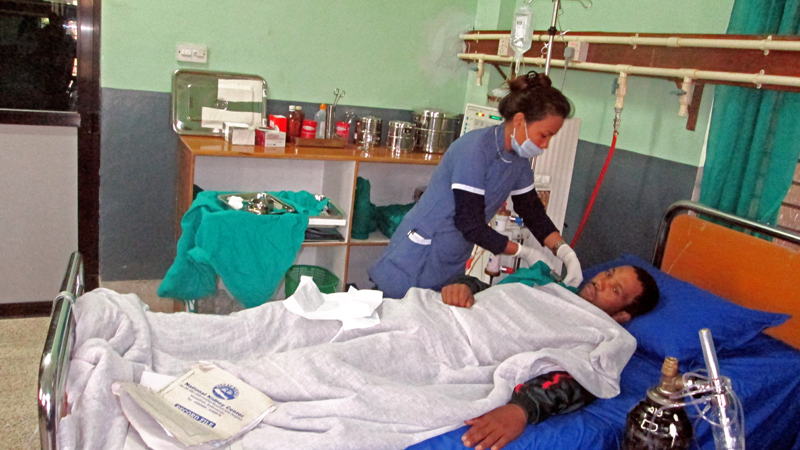‘Midwives saving thousands of lives’
Kathmandu, May 5
A full two thirds of all maternal deaths worldwide could be prevented if only a midwife had been present and midwives are heroes to women, adolescents and newborns especially in hard to reach communities and in humanitarian crises.
On the occasion of International Day of the Midwife today, Executive Director of the United Nations Population Fund Dr Babatunde Osotimehin, said in a statement that well-trained and well-supported midwives working in communities are uniquely positioned to provide the compassionate, respectful and culturally sensitive care a woman needs during pregnancy and childbirth.
UNFPA is eager to help countries strengthen midwifery skills and capacities, said Dr Osotimehin, adding that midwives are essential to achieving the Sustainable Development Goals.
“A vast majority of these largely preventable deaths take place in developing and crisis-affected countries.
If deployed in larger numbers, trained midwives could avert approximately two thirds of these deaths. Significant investments in midwifery are essential if the world is to achieve its ambitious goals of reducing maternal and newborn deaths.”
In Nepal, where maternal death is the leading cause of death among women of reproductive age, there is no professionally trained cadre of midwives.
While great progress has been made in reducing maternal mortality (901 per 100,000 live births in 1990 to 258 in 2015), using skilled birth attendants, reaching the ‘last mile’ will depend on investments in essential midwifery skills within the health sector.
Nepal is yet to introduce a midwifery course in universities.
The Midwifery Policy introduced in 2006 commits to initiating a formal midwifery course as an independent subject to reduce maternal and child mortality and morbidity.
Now the Ministry of Health and stakeholders are working to review proposed midwifery curricula for three universities, according to Ishwori Devi Shrestha, chief nurse administrator at the ministry.
Her remarks came at the 2nd National Midwifery Conference, held to mark the International Day of the Midwife that ended today.
At the gathering, stakeholders called on the government to speed up the process to introduce a midwifery course and start producing midwives.
“We are hopeful that a professional midwifery course will be launched in Nepal very soon as three universities have already prepared curriculum and submitted to Nepal Nursing Council for review and approval”, said Kristine Blokhus, deputy representative of UNFPA at the conference.
“Many women continue to die in childbirth. They die because they give birth at home without access to skilled care or because they give birth in health facilities which provide sub-standard care. Other women suffer chronic debilitating morbidities.
This is not acceptable.”
Similarly, President of the Midwifery Society of Nepal, Prof Kiran Bajracharya said that her organisation is working with development partners such as UNFPA to start midwifery services in the country and improve maternal and neonatal health further across the country, including in rural areas.






